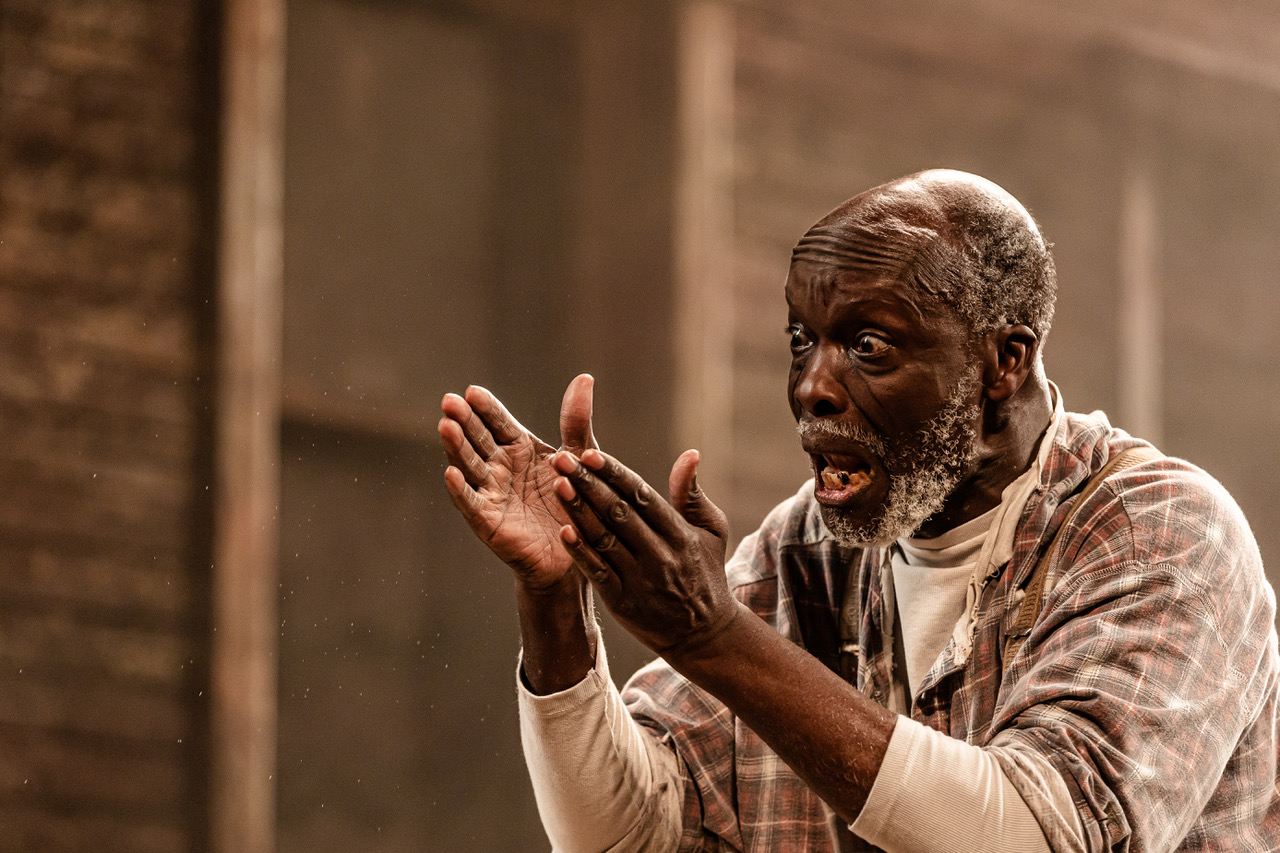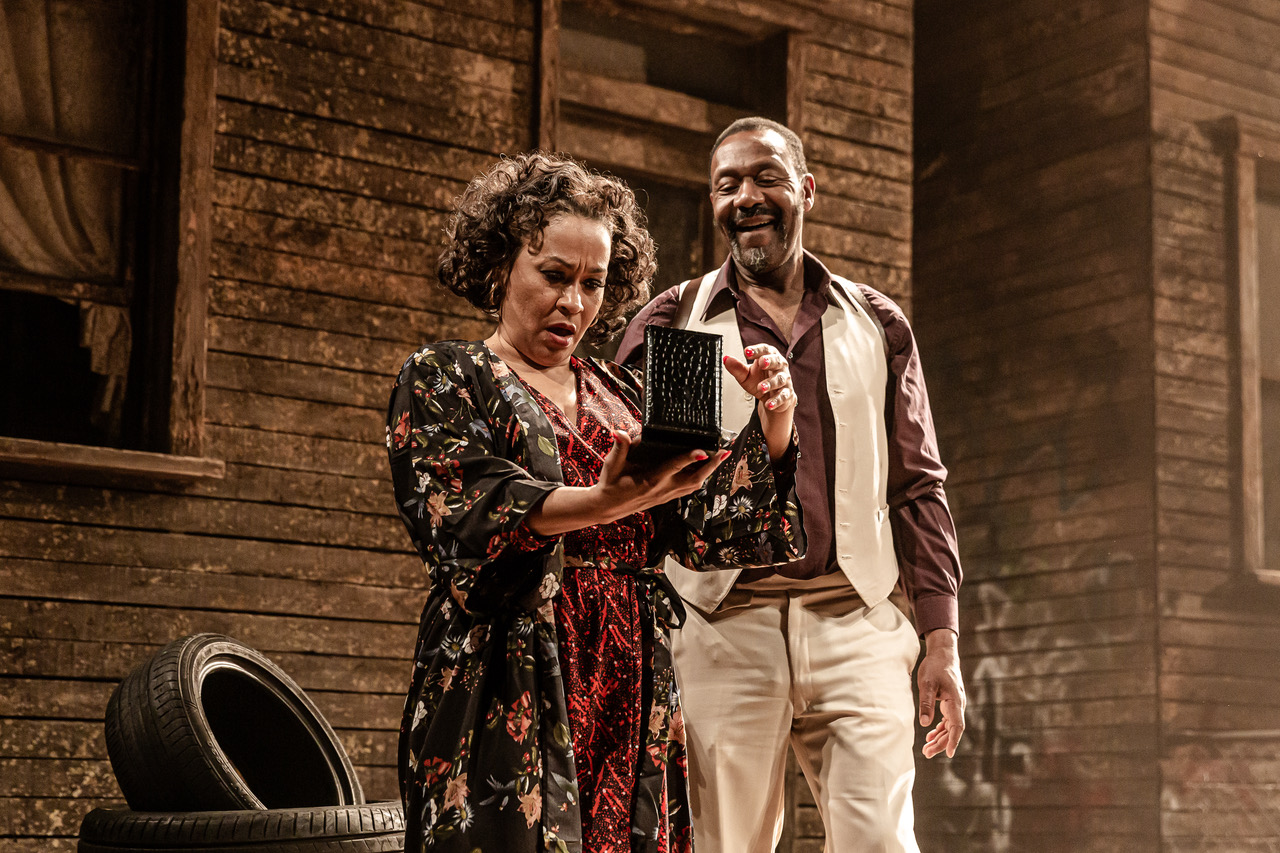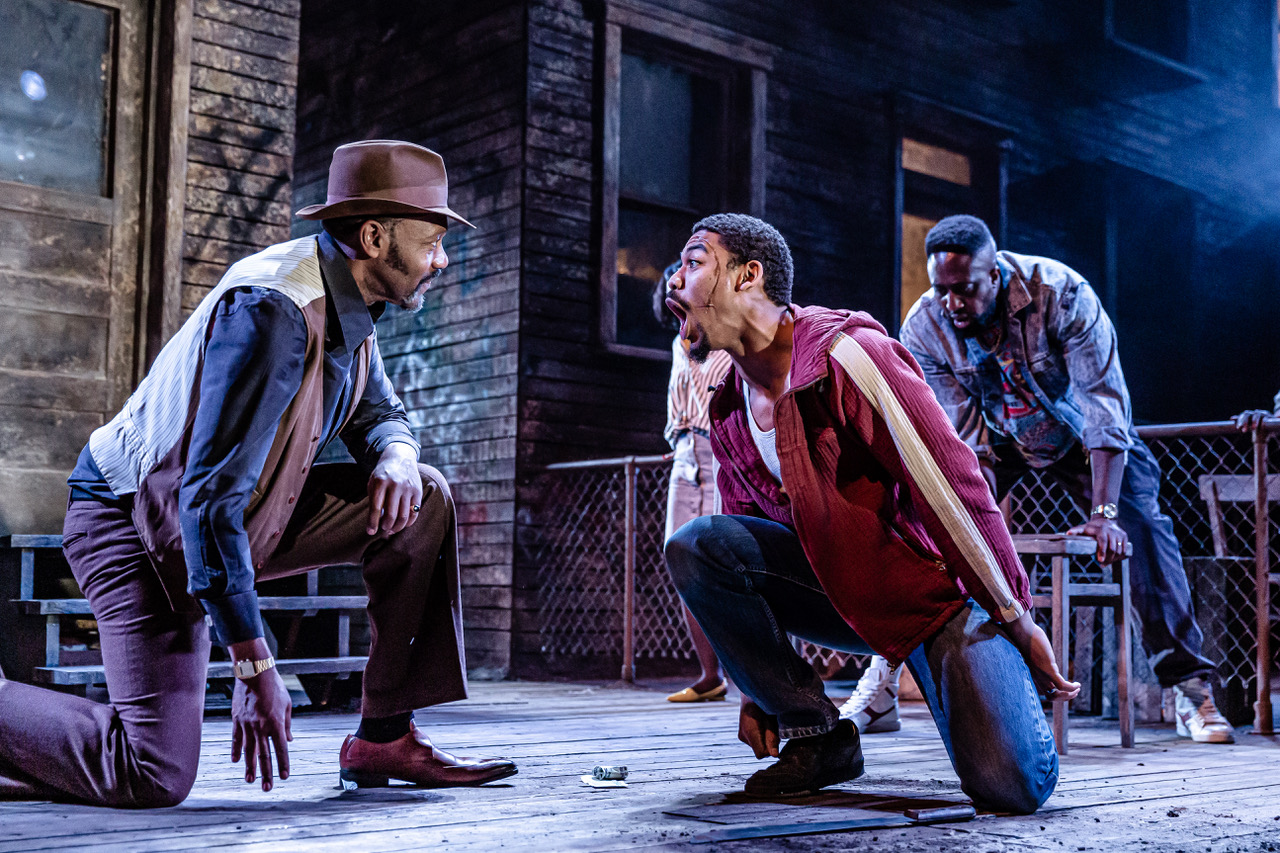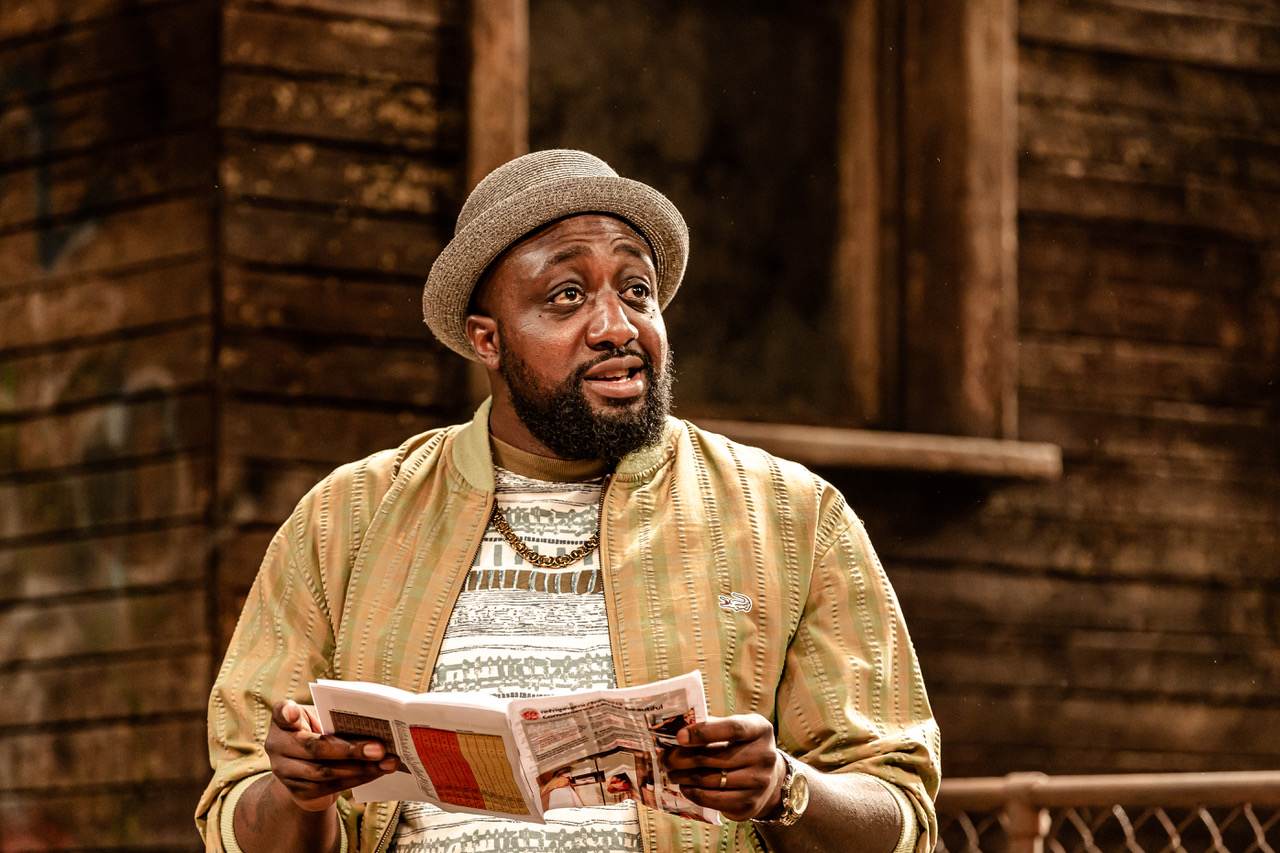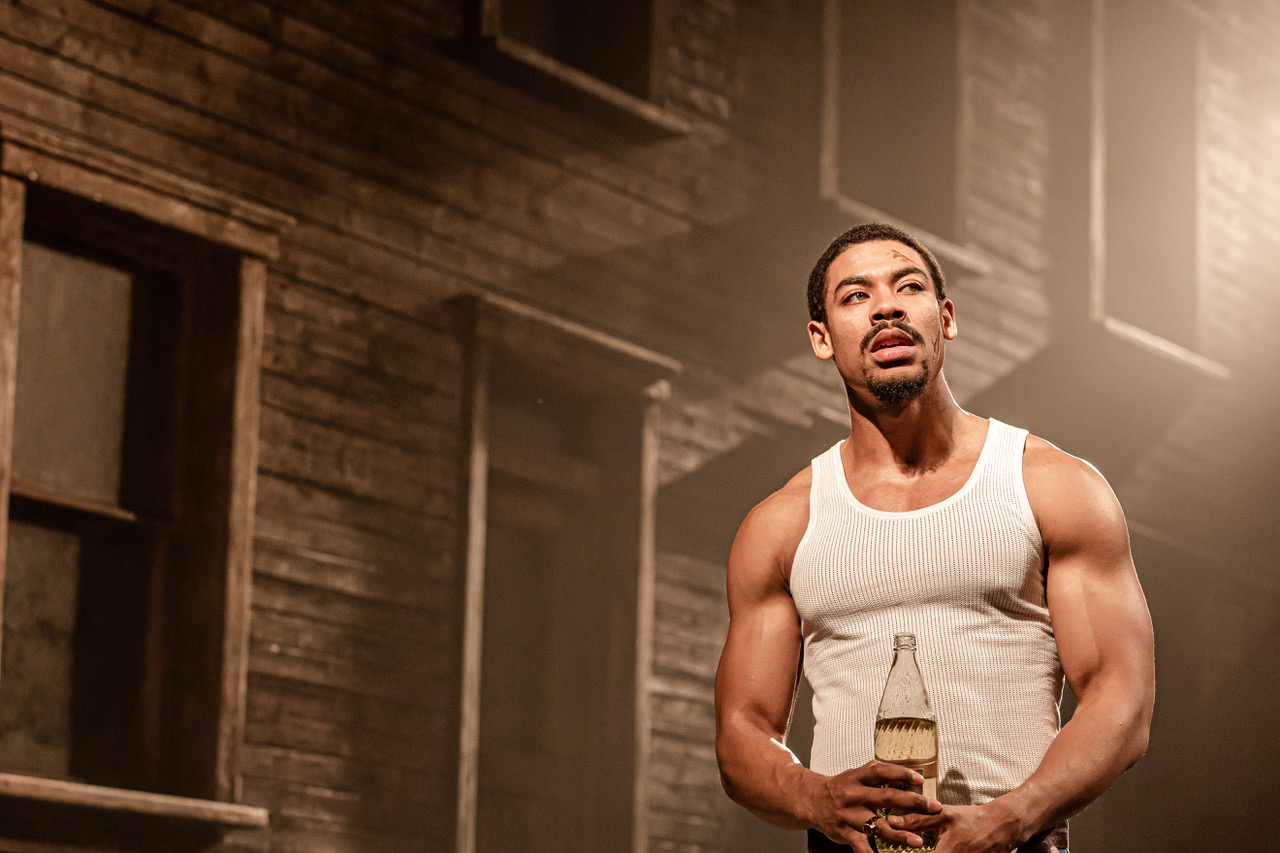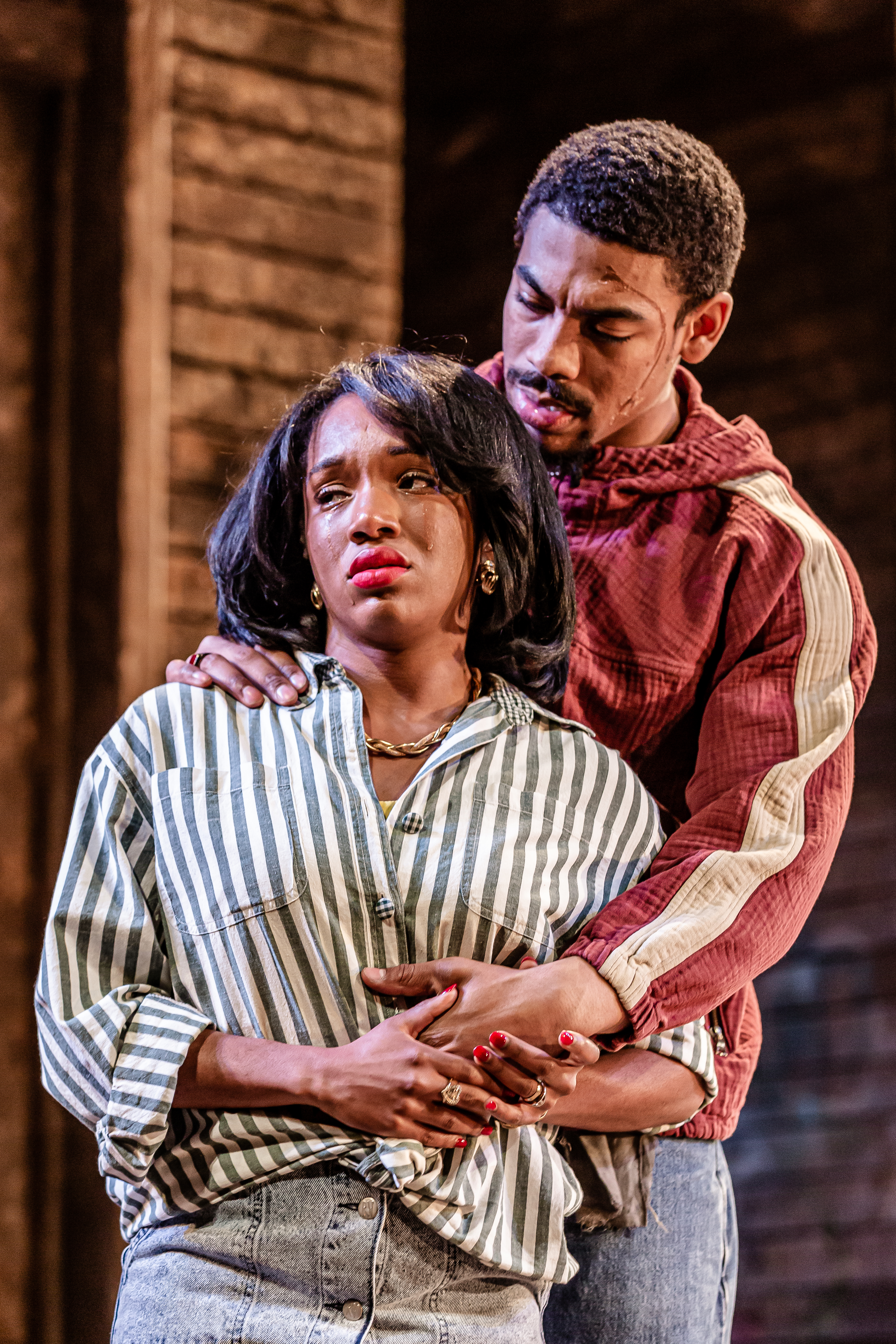King Hedley II is a character study of an African-American family trying to not only survive but thrive under Reagan’s individualistic, often racist administration. The play’s eponymous character is a young man, played by impressive newcomer Aaron Pierre, living in the shadow of his father’s legacy and haunted by his past crimes and an ill-fated romance. He is determined to better his situation but the injustices of poverty and racism brew in him a toxic masculinity that is only contained by the minute triumphs he contrives in his too-small backyard.
These magnetic performances truly earn the devastating, albeit inevitable, climax.
The cast is rounded out by King Hedley’s mother, girlfriend, best friend, neighbour and an elusive stranger played by Sir Lenny Henry. These characters provide a reflective lens through which the protagonist’s destructive tendencies are both stoked and soothed. In themselves, they offer a rich mix of complex black characters that are still all too rare on the stage. They charm and frustrate in equal measure; forcing your sympathy and welcoming your scorn with every turn, all the while commanding your unbroken focus.
King Hedley II is the ninth play of famed playwright August Wilson’s Pittsburgh Cycle of 10 plays which examined different decades in America and how black families fared in them. Pulitzer Prize-winning play Fences is the third in the series, and King Hedley II returns to characters established in Seven Guitars, including King Hedley the first of his name. Fall’s direction convincingly conveys the easy familiarity of black kin vibing and vibrating within each other’s space. It evokes the oddly inviting intimacy of a cookout, undercut by a potent, patient tension that is ever pushing the precarious familial dynamics to an edge from which the most careless of nudges could shatter all.
The performances are stellar, and each cast member deserves a shout out. While not as blistering as Pierre’s haunted and brooding performance, the moment Henry appears, his presence lends a charged gravitas to proceedings that centres the entire production. Cherelle Skeete uses the monologue her character is given to profoundly moving effect. Leo Wringer effortlessly steers Stool Pigeon’s moods as they veer from the ridiculous to the sublime. Martina Laird is sexy and sympathetic; tempering Ruby’s childlike capriciousness with worn anguish. Dexter Flander’s Mister is both convincing and hilarious as that one cousin everyone has. These magnetic performances truly earn the devastating, albeit inevitable, climax.
These characters provide a reflective lens through which the protagonist’s destructive tendencies are both stoked and soothed.
Peter McKintosh’s set grounds the lyrical dialogue and occasionally abstract references in the gritty reality of an impoverished Pittsburgh yard. The subtle shifts in scenery do a lot of the legwork of keeping an otherwise static setting feel dynamic and fresh. The production is overlong. At three hours and 15 minutes, excluding the intermission, and with the action limited to one setting, it lags. The time is used to reach deep into the motivations and fears of each character, but I felt a thorough examination could have been arrived at more expediently.
A small complaint in an otherwise heroic achievement by Stratford East’s artistic director Nadia Fall, who promised to put the historic theatre “back on the map.” Her first season as director stayed true to her vision to reflect the diversity of Stratford while offering consistent, compelling, boundary-pushing content. King Hedley II is the third production I’ve watched in the last year, and as a local I am excited to see where this bright young talent will take us next.






















